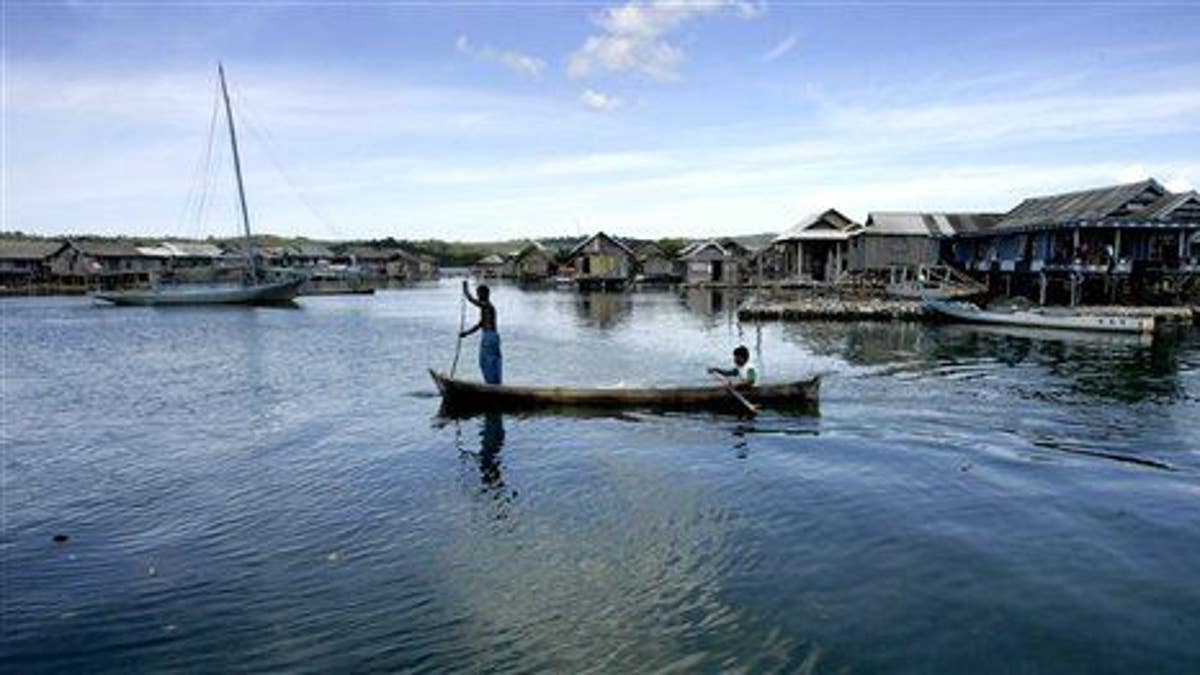
Men and women of the Bajau tribe row a boat at a fishing village on Kaledupa island, Southeast Sulawesi, Indonesia. (AP Photo/Irwin Fedriansyah)
"They are simply a stranger to the land," an anthropologist says of Southeast Asia's Bajau people, and a new study shows their bodies have changed to account for that.
The Bajau, who live in Indonesia, Malaysia, and the Philippines, sustain themselves by diving for fish, and have a noticeable ability to dive long and deep, even compared to other local divers.
The New York Times reports they can dive more than 200 feet down with no equipment other than wooden goggles. The feats led Melissa Ilardo to wonder if evolution played a role, and an ultrasound machine confirmed there was a biological difference: It turns out the Bajau have larger spleens.
When researching in Sulawesi, Indonesia, she compared the size of Bajau locals' spleens with those of the Saluan, a people who lived 15 miles inland. The difference was stark: The Bajau's spleens were about 50% bigger.
"It was like 'Oh my God,'" says a co-author of the study, published Thursday in Cell. As for why the spleen, the Guardian reports the researchers found a "clue" in research that had been done on seals: It turns out those seals that can dive for longer periods of time have bigger spleens.
During the "diving reflex," which is triggered when one submerges the head in water, the spleen contracts, pumping oxygen-rich red blood cells into the circulatory system.
The team measured the spleens of Bajau who weren't divers and found they were large, too, suggesting evolution is at play. They zeroed in on a gene variant called PDE10A as influencing the spleen's size.
What's unknown: When the change began. (A new human organ was recently discovered.)
This article originally appeared on Newser: Behind a People's Superhuman Ability to Dive: the Spleen
